When you meet Nick Catchdubs and A-Trak, you realize that for some people, there just aren’t enough hours in the day.
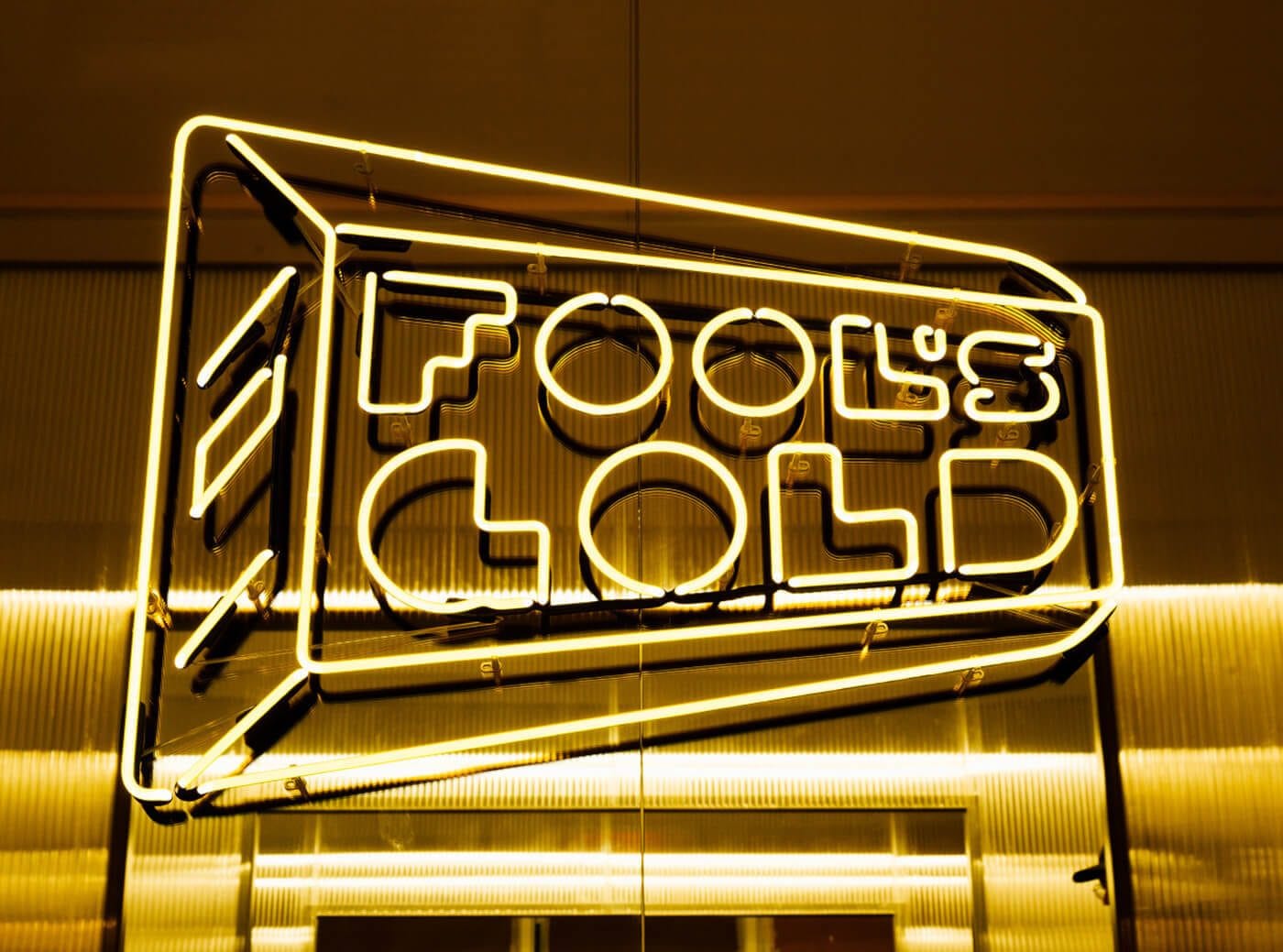
The DJ founders of Brooklyn-based record label Fool’s Gold Records, and self-proclaimed music nerds started down this path young. A-Trak, a.k.a. Montreal-born Alain Macklovitch, had his first record label after winning the World Turntablist title at age 15 – the youngest winner ever – and Nick, whose given name is Nick Barat, helped launch online magazine The Fader as a writer. Today they somehow manage to juggle their independent music careers with the demands of their joint business, and seem to relish the challenges of pursuing whatever it is that catches their eye or ear: Stoking the rigorous love of their craft that has given Fool’s Gold the cult following it has today.
Ask them about starting a record label and both will reply, “Don’t do it unless you’re ready for it to consume your whole life!” – while grinning from ear to ear. Carving an authentic path rather than following trends, Fool’s Gold has always danced to the beat of its own drum machine. The duo’s collaboration started out with their groundbreaking art of mixing hip-hop and dance music together; now it means opening up a brick-and-mortar store with a long lease – in Williamsburg, naturally – while everyone else is running temporary pop-up shops.
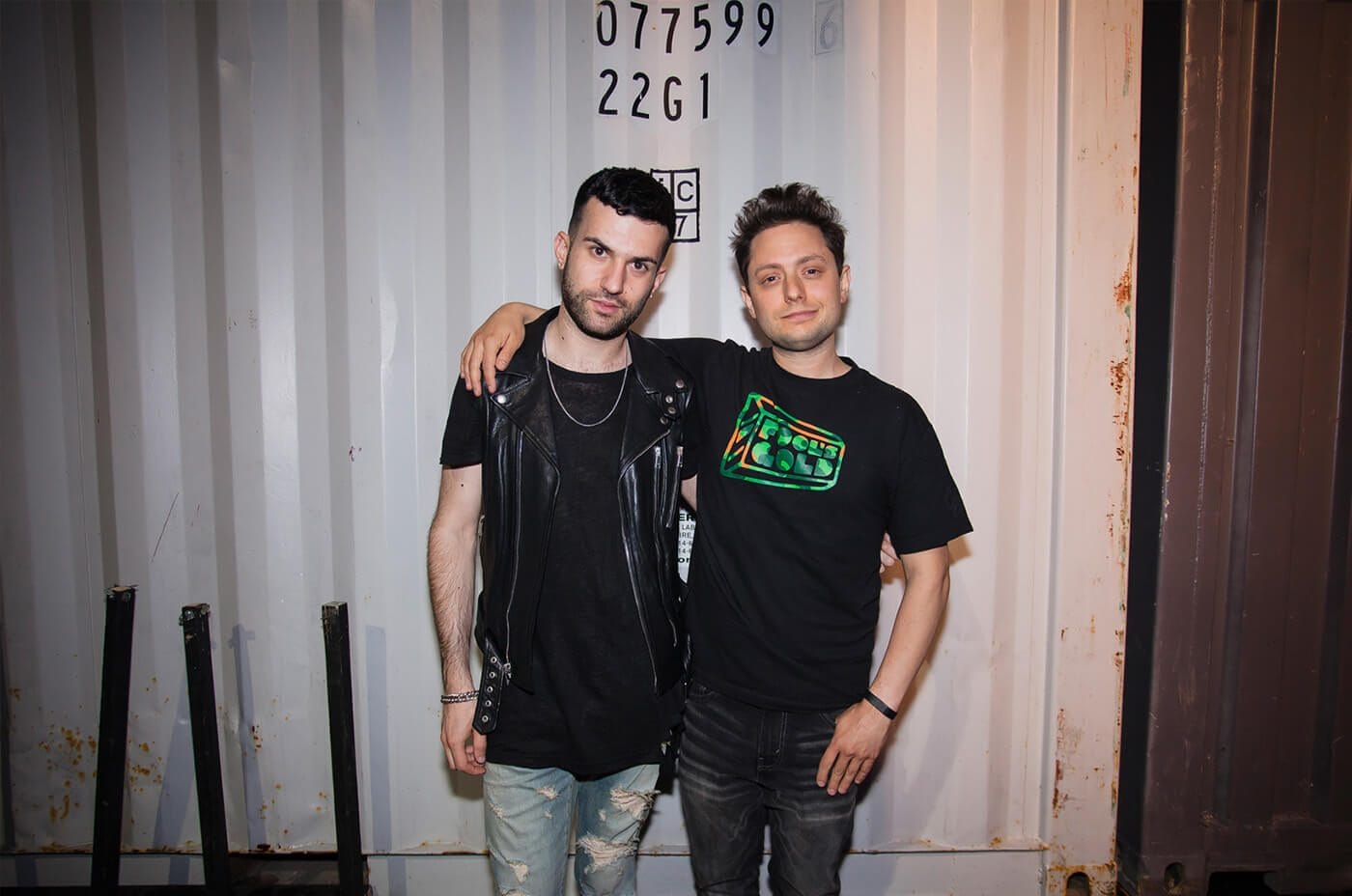
Always driven with a genuine goal in mind and motivated by what they call DHM (Deep Hidden Meaning), Nick and A-Trak have never shied away from diving headfirst into ventures that don’t necessarily make sense on paper but succeed through sheer determination and passion. On first impression it looks like Fool’s Gold Records has reached the pinnacle as the duo celebrates 10 years in business. But look a little closer at their worldwide hip-hop festival tour and the opening of their beautiful new store and you realize they are just getting ready for the next phase.
We figured it was time to sit down with the creative partners and learn about their ever-evolving path to success.
How did the two of you meet?
A-Trak: We met deejaying some parties together in New York. I grew up in Montreal and was on the road with Kanye, but I was discovering a new scene in New York that grabbed my curiosity. I would play these cool little parties, and at a bunch of them promoters would pair Nick and I up together, and we struck up a friendship from there. That was around 2005.
Nick: As much as our friendship was started amongst changes in the DJ world, there were probably changes going on in the media and cultural world, too, which made a fertile ground for the seeds of Fool’s Gold, as the big companies hadn’t figured that out yet. And being on the ground floor allowed us to see that before they did.
A-Trak: This can’t be overstated. In the mid-2000s, music magazines couldn’t figure out their online presence. The reality we know now, where music gets posted every day and the internet is faster than print press, hadn’t been figured out yet at that time. As DJs, we were living in an online reality where we were finding new music every day.
How does always looking for the “next big thing” flow into the ethos of Fool’s Gold?
A-Trak: When we started, it was considered novel to have a hip-hop song and a dance song together. Now it’s par for the course. It used to be dismissive to call a rising artist an “internet rapper.” Everyone’s an internet rapper now! The things that were new and weird when Fool’s Gold started – the rest of the world has caught up with that now. So it’s less about finding new variations and permutations and more about the quality level. For us, the challenge is taking what people are putting out there and making it better. We gravitate toward personalities that are compelling and look at how we can make them the best version of themselves.
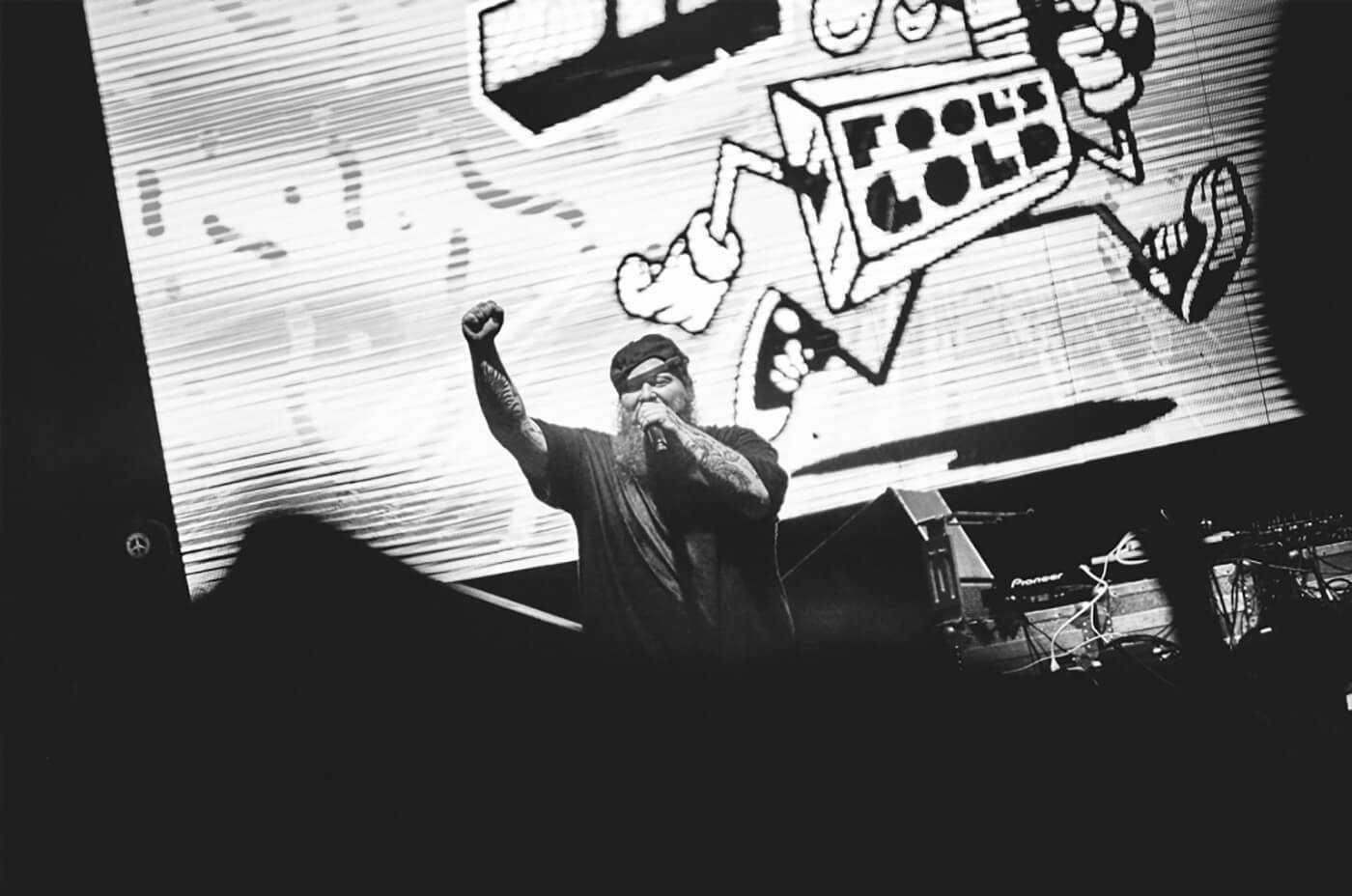
Nick: When Fool’s Gold started, having good artwork was rare, so it was easy for us to stand out. Now we are living in a time with an aesthetic generation, raised on Tumblr and Instagram. Most people have it together in terms of presentation and art. Almost everything is good. Fool’s Gold’s job is to make it stellar. Anyone can make a record sleeve, but that stuff is worthless unless there is a bigger idea behind it. We often talk about this idea of “DHM.” It comes from a Nile Rodgers’ book where he talks about all his songs with artists, and making sure there was a “Deep Hidden Meaning” behind the things he did.
You have both been in the music business since you were young. When did you realize you wanted to start a label and why?
A-Trak: I had another label before with my brother Dave [a musician in the band Chromeo], called Audio Research. We would release one single a year. We were really interested in the DIY reality of pressing vinyl and putting out our friends’ music. It was about not waiting for someone else to give you the keys to do something. It instilled a reflex in my brain where if you are working on a song and it’s great, you end up having this natural inclination to press it up and put it out. You don’t just stop with a piece of music sitting on a hard drive. I was trained to do that from running Audio Research. When I started touring with Kanye, my first label went dormant, so when I met Nick I remember having some conversations with him about putting some new stuff out, but it was a different sound from what I did on my old label. We started exchanging MP3s and it felt like a fantasy baseball version of having a label – and that just turned into us deciding to start something new ourselves.
Nick: For me, I just felt like it was interesting and at the intersection of all the stuff I had a passion for. It’s funny, because now when kids ask what advice I have for starting a label, it’s “Don’t!” But you need some of that naive “Fuck it, I’m doing it” to get it started, as logically there are so many warning signs telling you not to do it. If you can disregard those it means you still have the fire to keep it going when things get tough. You have to have something beyond a logical sense of it being something that can sustain itself.
A-Trak: Running an independent business takes up every minute of your life. It’s a constant challenge every single day just to balance out the time for creative endeavors you want to do yourself as an artist and running a company with friends. But the stuff I’m proudest of in my whole life are instances of going where you are not supposed to go and breaking ground in some way. There are reasons why it’s rare to break ground. It’s not easy. It will drive you crazy. But I kind of love it.
Nick: If you can see it’s nuts and still want to do it, that means you should do it. It’s kind of like the difference between the person who goes into the cave to find treasure and the person who says, “Fuck that, something’s going to eat me.” I know a lot of talented people who just opted out, thinking, “This is going to be a hassle; I’m going to hit the bong now.” At the very least we can say we have this beautiful store.
What was the biggest lesson learned operating the label over the past 10 years?
Nick: I think one of the biggest recurring lessons has involved a certain amount of planning and rigorous structure outside of our creative impulses. Our first couple of releases made money straight away, and then we found ourselves in year three or four where there was a big stash of money in the bank account. But we were losing money on all the subsequent ones and not realizing it until two years later. Everything was by the seat of our pants, and every couple of years we would realize we needed to tighten different areas. Even just having staff: There have been iterations of the staff over the years that have been progressively more professional.

Nick: The thing no one tells you about working with other people is that the key to that sentence isn’t “working” but “people.” Regardless of what your goals are, if you can’t nail the interpersonal aspect of it, you’ll never be able to get to the philosophical mission side. We are so used to just doing things ourselves, but Fool’s Gold is greater than any one person. It’s cool to look back and see how everyone has played their part.
A-Trak: In the last six months or so I have gotten more interested in the biz dev side of Fool’s Gold, and there is one record mogul in particular who was giving me advice a couple of months ago. I went to him and said I wanted to hire a COO for the company, and his response was “I could give you names all day long, but the most important thing is that whoever you get to hire has to hang out with the rest of your team and have chemistry with them and respect them.”
At a company like Fool’s Gold, with just 10 people, the interpersonal jelling between every single one of us is just as important as the actual accuracy of our work. We are all perfectionists and like to think our attention to detail is what makes us stand out, but I think there was a time when it took us too long to get anything out. In any creative field, there is this feeling that you have to get shit out there into the world. Learning how to fine-tune things to get stuff out the door regularly enough has been a big lesson for us.
How does running Fool’s Gold now compare to running it in the beginning?
A-Trak: Having an office is nice; I remember when our mailing address was Nick’s apartment. There’s a larger scale pattern with Fool’s Gold where we try to find the next move when everyone is stuck doing something else. In the mid-2000s, when we were founded, the major labels were terrified by what downloading was doing to their economy and didn’t know how to market their music. We founded a record label the year everyone thought the industry was failing.
Similarly, we founded a store with a five-year lease just when everyone else is doing a temporary pop-up. It’s just like when Eminem was first blowing up and every record label wanted to sign up a white rapper. That’s the opposite of what Fool’s Gold tries to do. We are never looking for a thing that already exists. We are just looking for stuff that catches our attention. Myself, Nick, and my brother Dave are the creative heads of the company, and we are hip-hop kids at heart.
And the braggadocio of hip-hop is the idea of stunting and making everyone around you go “Oh shit.” Everything we do here at Fool’s Gold has to have an element of that – whether it’s the lineups we put together for our events and finding an artist no one has thought of for the last 10 years and putting them together with the latest kid, or the architecture of the store itself, or Nick’s awesome accessories that he comes up with. It always has to have the “Oh shit” factor.
Fool’s Gold is a record label with a high aesthetic value. Where did that come from?
Nick: It boils down to taste. If you have good taste it extends to musical choices and visual ones alike. When we began, our art director, Dust La Rock, had a personal style that was very illustrated and detailed and highlighted his own esoteric interests in the Illuminati, etc. It became the early Fool’s Gold identity, but we evolved over the years and the artwork evolved with it. Our changing digital side has always been in response to the music primarily, but also the culture at large. We’ve never really followed trends or bucked them. If you have good taste, you have a sense of when your stuff needs to be refreshed or shaken up.
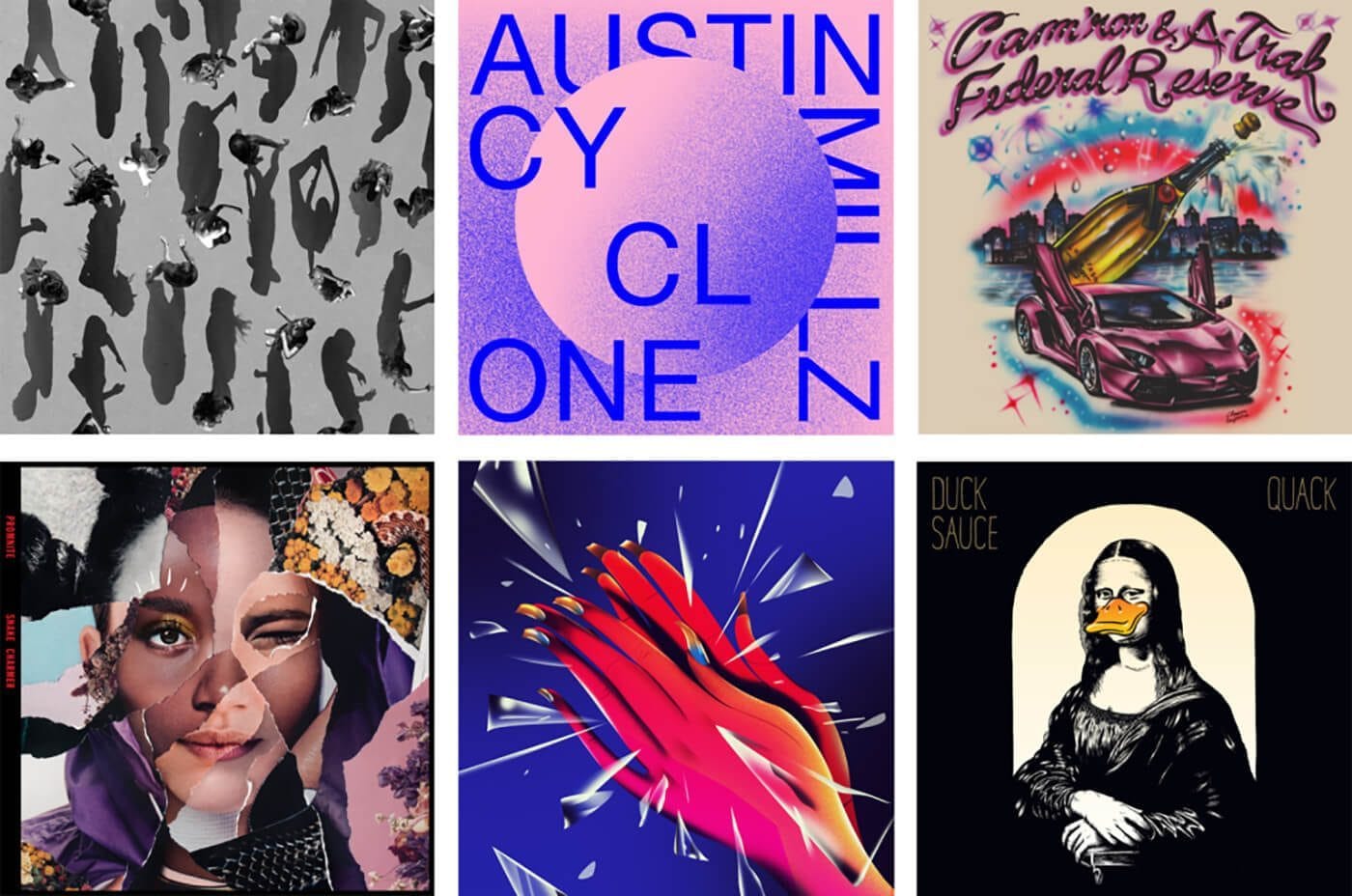
You both have a broad sense of style. How do you know something is authentic to the Fool’s Gold brand?
A-Trak: I wish we could put that in words, because every time we hire someone, that is the toughest part of the process.
Nick: At times it comes down to a level of intent, and you can tell who is sincere about what they are doing versus who is wearing the costume. That authenticity takes things to the next level. The idea of something being middle-brow is kryptonite to us. Of all the things that go into a professional career – you can learn the tech side and the business side, but you can’t learn to be cool. You can’t be a corny person and practice really hard and stop being corny! Charisma is natural, and we gravitate toward people with that charisma.
Of all the tracks the label has put out, which are your favorite and why?
A-Trak: It’s funny, because last night I was deejaying in Washington, D.C., and dropped an old Fool’s Gold classic, Treasure Fingers’ “Cross the Dance Floor.” Specifically, a Laidback Luke remix. Getting that Laidback Luke remix represented a time when some of these subscenes in dance music started intersecting. Up until the early years of Fool’s Gold, people rarely crossed those lines. When you go back to the older catalog there are odd choices that didn’t sell at all that I’m still fond of. The other day I saw the cover for an old Alexander Robotnick single and remembered getting the rights to a song by this Italian disco god and releasing it and losing money on it, and I am still so happy we did it.
Nick: Sometimes the misses are more interesting storywise than the hits. I love that we put a record out by the Susan, because we exposed people to it even if it didn’t sell well. The records I’m proudest of are the ones where we made something that is greater than the sum of its parts. The challenge of being attracted to such one-of-a-kind personalities is that some of them are particular, so you can’t always nudge people in the way you want to, so sometimes you just have to take what you get. My attitude to remixes is that they have to justify their existence.
We got GTA to do a remix for Giraffage–he makes Nintendo music, but it’s not a club thing. GTA is one of the best club music groups out there. So I thought if they remixed Giraffage it would be great. It was a challenge getting everyone into the idea, but they did the remix and it was phenomenal. GTA still plays that remix. I love that there is something that exists because I was stubborn enough to say, “Trust me, let’s do it.”
Fool’s Gold has grown beyond a music label. Why did you enter the clothing and events business?
Nick: It’s a very natural extension of what we’ve been doing. It’s cool that fans are educated, and the same person who cares about who produced a record cares about where the denim in their jeans came from. Record nerds are probably sweatshirt nerds too! We appreciate when craftsmanship goes into anything, and we want our product offering to reflect our sensibilities and respect our audience. We can bring in outside ideas in ways we can’t for an album project.
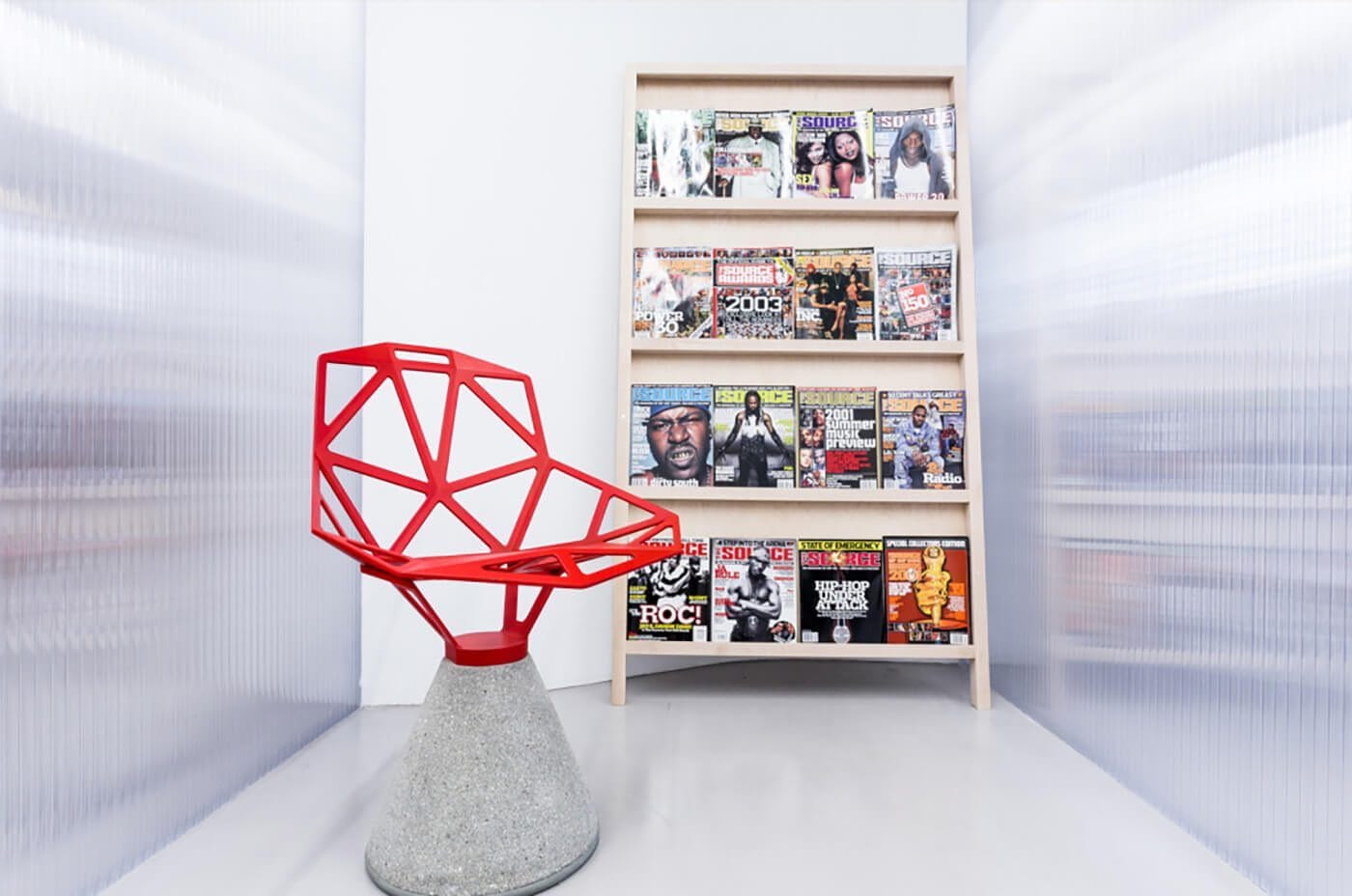
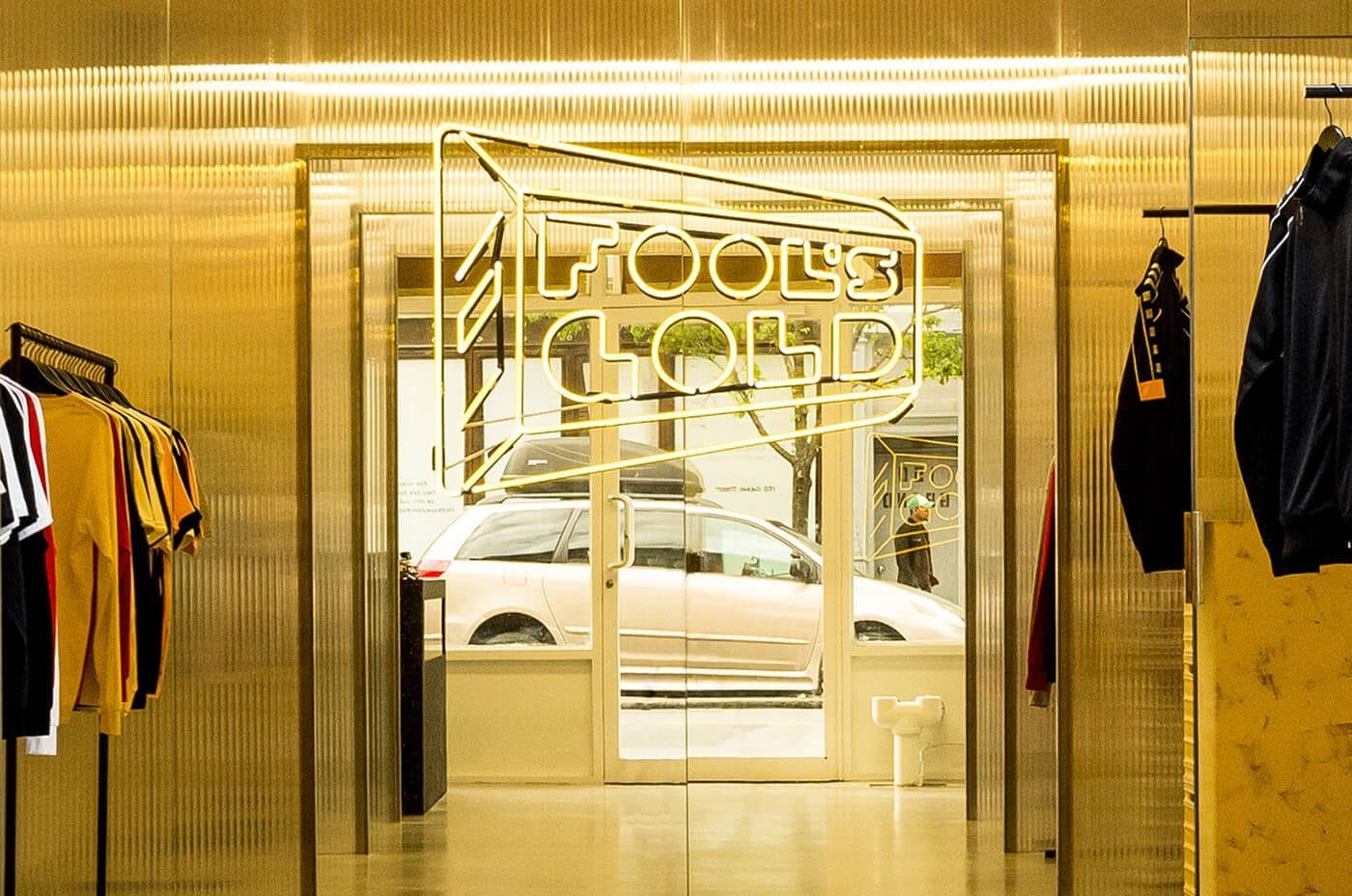
As a label owner, is there ever a situation where you see a big-dollar opportunity but know it doesn’t fit the brand?
Nick: That presents itself less on a signing level and more on a sponsorship level, as that’s the money that comes with strings attached, and we have to balance staying true to our values with the realities of our business. We have always had a very healthy respect for our fans and audience and would never do anything that felt like a sellout.
How do you focus when you have more ideas than money?
Nick: There’s no right or wrong way to do it. I think you need to be ambitious and realistic at the same time, and sometimes that’s easier said than done. You have to be crafty. I feel like we do more with less in certain ways, because the most important currency is ideas. Sometimes it’s better to have more ideas to get out of a situation than to just have a budget. For us it often boils down to outthinking people rather than outspending them.
As DJs and producers, how do you find time to run a business?
A-Trak: I have a natural tendency to take on too much, and I think it’s been a gift and a curse in my life. The challenging thing with that is finding the hours in the day, let alone the energy, to see through multiple projects. I believe that balancing multiple projects is why I have never gotten bored in my 20-year career and have stayed inspired. The thing that is fun and actually effective about having a music career and balancing that with Fool’s Gold is that there are all these synapses that feed each other.
As I’m researching music, I can find someone to sign to Fool’s Gold. As I’m out in the field deejaying, the opening DJ might tell me about his friend who is a rapper that is really killing it in that city, and I might end up signing them or collaborating with them. Nick is my partner, but for all intents and purposes he is my brain trust on the A-Trak side of things. I get access to one of the best brains when I am brainstorming for the next iteration of an A-Trak project. Everything is connected.
We are living in a time when the marketing ideas and the presentation are as important as the substance. There are a lot of lessons I have learned on the A-Trak side that will benefit Fool’s Gold, and the other way around. The biggest challenge is flicking off the giant switch in my mind. Most of my days are filled with the “hustle” work – the emails and the texts and project moving – until midafternoon. I try to dedicate the latter part of my day to some of my own projects and working on music. Going from Fool’s Gold email to trying to come up with an idea for a song are challenging persona switches.
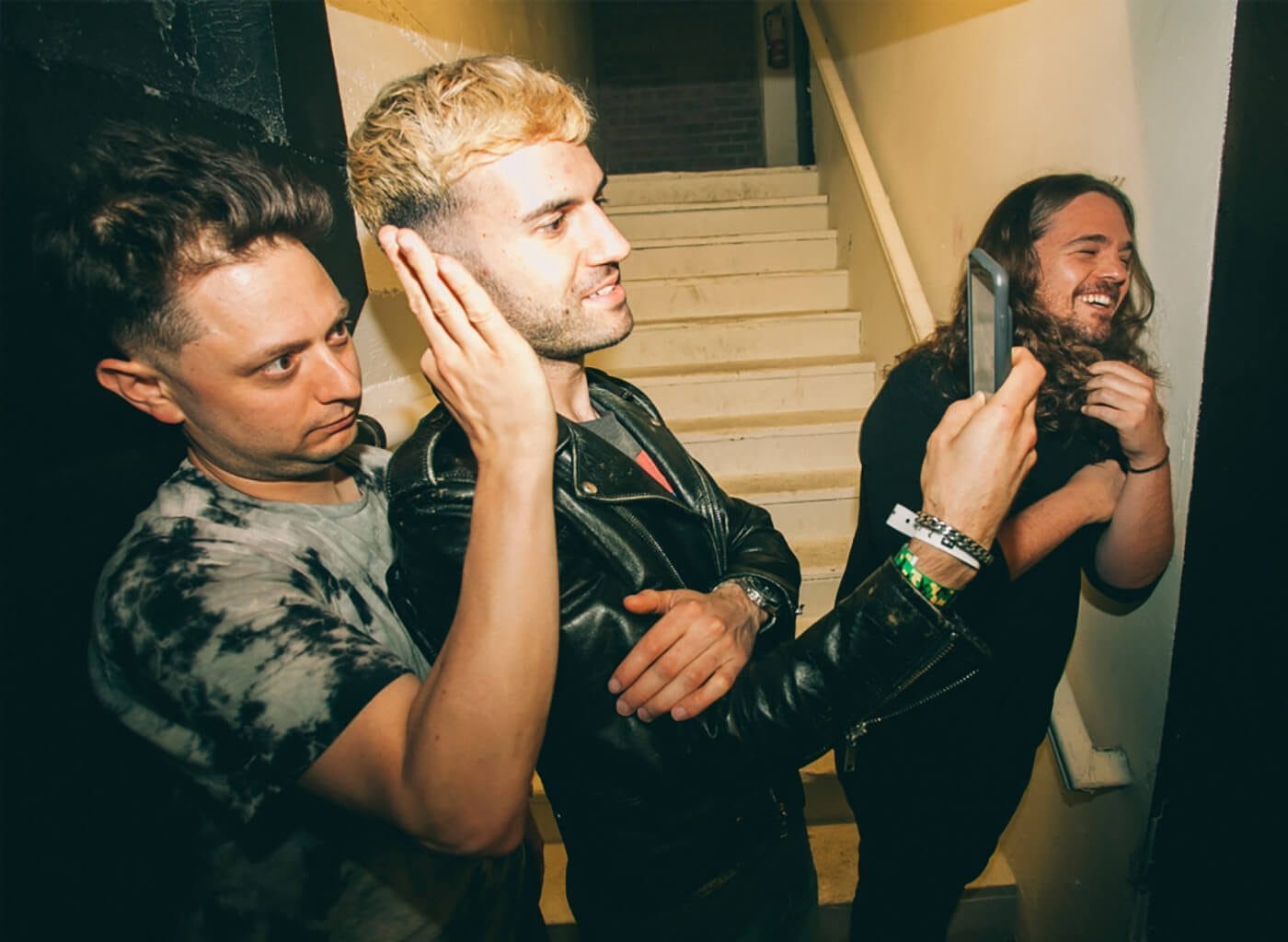
What do you have planned to celebrate your 10-year anniversary?
A-Trak: The opening of the store is part of it, and we have events sprinkled throughout the year. The events side has become practically as big as the record label side of the company. We are hitting six cities with Fool’s Gold Day Off. At the same time, we are doing a new series of underground showcases in New York called “New York’s Loudest.” Even that sort of touches on part of our recurrent theme at Fool’s Gold: That when one thing gets big we try to nurture the next thing. The Day Off festivals have gotten big, so we want to do these little showcases. We are always mindful to have that three-dimensional approach to what we do.
Nick: We are working on a book. I’ve been a little like the keeper of the scrolls here when it comes to the label. There has been shit we’ve done that is almost like a surprise to me that we did it. The ups and downs of the label and the things we’ve released make it such a weird thing in a way. We have some weird little wavy sidebars that are important to the history of what we do. So with the book, I like that we’ll have this tome which you can go through chronologically, and it’s a thing I look forward to handing to a new employee that embodies the spirit of what we do. Right now I’m just going through everything and organizing, but the book part will come quickly, and it’s important that this 10th year ends first, as there is so much we are doing. As 2017 comes to a close, we will piece the actual bits together.

